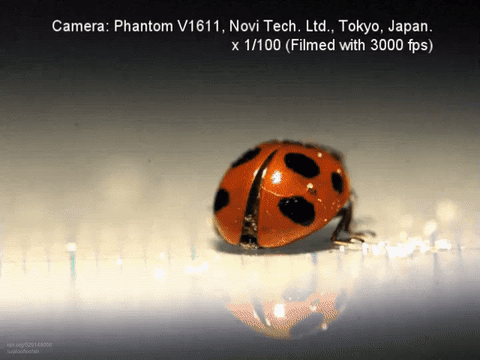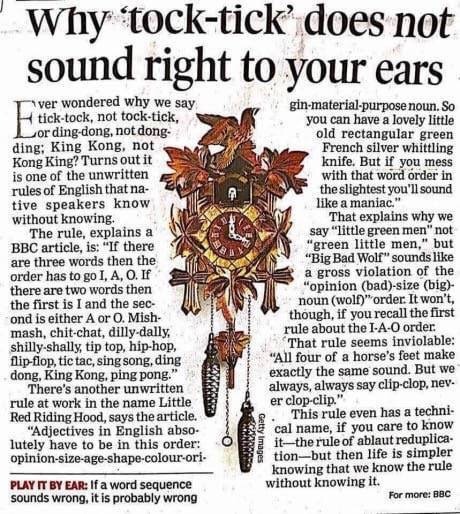How To Read A Stab Wound
How To Read A Stab Wound
Most emergency departments do not see much penetrating trauma. But it is helpful to be able to learn as much as possible from the appearance of these piercing injuries when you do see them. This post will describe the basics of reading stab wounds.
Important: This information will allow some basic interpretation of wounds. It will not qualify you as a forensics expert by any means. I do not recommend that you document any of this information in the medical record unless you have specific forensic training. You should only write things like “a wound was noted in the midepigastrium that is 2 cm in length.” Your note can and will be used in a court of law, and if you are wrong there can be significant consequences for the plaintiff or the defendant. This information is for your edification only.
1. What is the length of the wound? This does not necessarily correspond to the width of the blade. Skin stretches as it is cut, so the wound will usually retract to a length that is shorter than the full width of the blade.
2. Is the item sharp on one side or both? This can usually be determined by the appearance of the wound. A linear wound with two sharp ends is generally a two sided knife. A wound with one flat end and one sharp end is usually from a one-sided weapon. The picture below shows a knife wound with one sharp side.
3. Is there a hilt mark? This can usually be detected by looking for bruising around the wound. The picture below shows a knife wound with a hilt mark.
4. What is the angle? If both edges are symmetric, the knife went straight in. If one surface has a tangential appearance, then the knife was angled toward that side. You can approximate the direction of entry by looking at the tangential surface of the wound edge. In this example, the blade is angling upward toward the right.
5. How deep did it go? You have no way of knowing unless you have the blood stained blade in your possession. And yes, it is possible for the wound to go deeper than the length of the knife, since the abdominal wall or other soft tissues can be pushed inwards during the stab.
More Posts from Theperpetualscholar and Others
Important Terms
For approaching Religious and Anthropological Studies:

Cultural Relativism:
“The ability to view the beliefs and customs of other peoples within the context of their own cultures rather than one’s own; or, describing another culture from its own point of view without imposing one’s own cultural values.” Look at what people BELIEVE, not whether or not what they believe is “true.”

Ethnocentrism (the opposite of cultural relativism):
“The tendency to judge the customs of other societies by the standards of one’s own; combines the belief in the superiority of one’s own culture with the practice of judging other cultures by the standards and values of one’s own culture.”
Harnessing ethnocentric ideas when approaching religious and cultural studies will hinder one from truly being able to learn and understand other peoples and their cultures.
FREE MEDICAL PDFs
Anatomy:
1–> KLM for Gross Anatomy
2–> Snell’s Anatomy
3–> BD Churassia
4–> RJ Last
5–> Grey’s Anatomy
6–> Langman Embryology
7–> KLM for Embryology
8–> BD For General Anatomy
9–> Dissector
10–> Di Fore Histology
11–> Junqueira’s Histology
12–> Netter Atlas of human Aantomy
Folder link–> https://drive.google.com/open?id=0B3WdpdsqpX0LYV9KQ3lxY29FY28
Physiology:
1–> Guyton
2–> Ganong
3–> Sheerwood
4–> Sembulingam
Folder link–> https://drive.google.com/open?id=0B3WdpdsqpX0LdXlCSjdZM214dEE
Biochemistry:
1–> Harper
2–> Lippincott
3–> Chatterjea
4–> Satyanarayan
5–> Stryer
6–> MRS Biochemistry
Folder link–> https://drive.google.com/open?id=0B3WdpdsqpX0Ld0o3WnhCR2VEczg
Pathology:
1–> Big Robins
2–> Medium Robins
3–> Pathoma
4–> Goljan
5–> Harsh Mohan Pathology
6–> Atlas of Histopathology
7–> Levinson
8–> MRS microbiology
9–> Microbiology by Jacquelyn G. Black
10–> Color Atlas of Microbiology
11–> Kaplan Pathology
Folder link–> https://drive.google.com/open?id=0B3WdpdsqpX0LYkRYdjFrTm5MR0U
Pharmacology:
1–> Big Katzung
2–> Mini Katzung
3–> Kaplan Review
4–> Lippincott
5–> Pocket Katzung
6–> Rang and Dale’s Pharmacology
7–> Atlas of Pharmacology
Folder link–> https://drive.google.com/open?id=0B3WdpdsqpX0LMkE1UUVRZGwtTlU
Forensic Medicine:
1–> Simpson’s Forensics
2–> Krishan’s Forensics
3–> Atlas of Autopsy
4–> Atlas of Forensic Medicine
Folder link–> https://drive.google.com/open?id=0B3WdpdsqpX0LQXVwOGoyWnFSV2s
Ophthalmology:
1–> Jogi
2–> Jatoi
3–> Parson’s Textbook of Eye
4–> Kanski
5–> AK Khurana
6–> Atlas of ophthalmology
Folder link–> https://drive.google.com/open?id=0B3WdpdsqpX0LOHc5WVZMdkJjX2M
Otorhinolaryngology:
1–> Dhingra
2–> Logans Turner
3–> Color Atlas of Otorhinolaryngology
4–> Maqbool’s Text Book of ENT
5–> Clinical Methods in ENT by PT Wakode
6–> ENT at a Glance
Folder link–> https://drive.google.com/open?id=0B3WdpdsqpX0LaDY2a0lFNDlfTGc
Community Medicine:
1–> Monica’s Text Book Community Medicine
2–> Mahajan And Gupta Text Book of Community Medicine
3–> Bancroft’s Text Book of Community Medicine
Folder link–> https://drive.google.com/open?id=0B3WdpdsqpX0Lc1RCMml2NjhFNjA
Internal Medicine:
1–> Churchill’s Pocketbook of DD
2–> MTB Step 2 Ck
3–> Davidson Essentials
4–> Davidson Principals and practice
5–> Harrison’s Internal Medicine
6–> Internal Medicine USMLE Nuggets
7–> Internal Medicine on call bt LANGE 8–> Oxfords Specialties
Folder link–>https://drive.google.com/open?id=0B3WdpdsqpX0LeEFJNG5TMlc4eWc
Surgery:
1–> Bailey_love short practice of Surgery
2–> Churchill’s pocketbook of Surgery
3–> Deja Review of surgery
4–> Farquharson’s Textbook of Operative General Surgery
5–> Hamilton Bailey’s Physical Signs
6–> Oxford Handbook of Clinical Surgery
7–> Schwartz’s Principles of Surgery
8–> Macleod’s Clinical Examination
9–> Macleod’s Clinical Diagnosis
Folder link–>https://drive.google.com/open?id=0B3WdpdsqpX0LRFpFSG5hZ1pVWkE
Obstetrics & Gynecology:
1–> Case Discussions in Obstetrics and Gynecology
2–> Deja Review of Obstetrics Gynecology
3–> Obstetrics by Ten Teachers
4–> Gynaecology illustrated
5–> Gynaecology by Ten Teachers
Folder link–>https://drive.google.com/open?id=0B3WdpdsqpX0LMU1LRjFDa1FrbjA
Pediatrics:
1–> Nelson Essentials of Pediatrics
2–> Nelson Complete
3–> Pediatrics Review
Folder link–>https://drive.google.com/open?id=0B3WdpdsqpX0LUkdTQkVuNV92Yzg
I hope this helps everyone, it’s not mine. But has been shared to me and I am sharing this with all of you.
![Fibonacci All Day, Every Day [http://bit.ly/2jiUBF6]](https://64.media.tumblr.com/1e36b5a5c8cdbfeed92405f48fdadf25/tumblr_ok91k7HEuD1s04h2ho1_500.gif)
Fibonacci all day, every day [http://bit.ly/2jiUBF6]



🌲Hooray!🌲 • The first piece from our Modern Wolf chronicle is ‘in the air'🖤🖤 • check out the Czech page👉🏻👉🏻https://m.facebook.com/prichazejivlci/

The First Newspaper
This one goes to the Romans! They had “Acta Diurna” (Daily Events) which was a handwritten news report, posted in multiple public places for the public to read. It first appeared in 131 BCE during the Republic. Although initially only the outcomes of trials, the Acta Diurna eventually expanded to public notices and announcements like important births or senatorial decrees.
Hit me with a cool fact of the brain!(short if possible?I have duslexia)Thanks!✨
Ok from where you’re sitting right now I want you to try and slowly scan the room from left to right in one smooth motion. It’s not possible- instead, your eyes move along in little jumps called saccades. Now I want you to lift your pointer finger up and move it along from left to right, following it with your eyes. You’ll now notice your eyes no longer move in saccades but follow your finger in a swift motion known as a “smooth pursuit”. This movement allows our eyes to closely follow a moving object and evolved to aid us in catching prey or keep away from predators. Autistic people, abuse victims and those under the influence of alcohol or drugs often show a lack or defecit of smooth pursuit.

The Six Pack Turtle ~ Often, when humans discard their garbage, there is little to no consideration where it goes or what it affects. In the case of this unfortunate turtle, he found a six-pack soda ring that became tightly fixed around his shell. As the turtle grew, the ring constricted his shell growth as well as internal organ development. This turtle ultimately died as result of this man-made deformation. Thank you so much to SkeletonMuseum on Instagram for sharing.

How ladybugs unfold their wings

Today on “rules of English language I didn’t realise were a thing until someone pointed it out”
-
 dancing-bl0ss0ms liked this · 3 months ago
dancing-bl0ss0ms liked this · 3 months ago -
 rinne1111 liked this · 9 months ago
rinne1111 liked this · 9 months ago -
 satansexcounsellor liked this · 10 months ago
satansexcounsellor liked this · 10 months ago -
 mellodyevangeline liked this · 1 year ago
mellodyevangeline liked this · 1 year ago -
 heckcareoxytwit reblogged this · 1 year ago
heckcareoxytwit reblogged this · 1 year ago -
 thepyromanichasarrived liked this · 1 year ago
thepyromanichasarrived liked this · 1 year ago -
 bellaskermit liked this · 1 year ago
bellaskermit liked this · 1 year ago -
 weltstevorakig liked this · 1 year ago
weltstevorakig liked this · 1 year ago -
 ceveks liked this · 1 year ago
ceveks liked this · 1 year ago -
 maximay0e liked this · 2 years ago
maximay0e liked this · 2 years ago -
 themethodofholmes liked this · 2 years ago
themethodofholmes liked this · 2 years ago -
 decaysan liked this · 2 years ago
decaysan liked this · 2 years ago -
 physistuff liked this · 2 years ago
physistuff liked this · 2 years ago -
 linhdorr liked this · 2 years ago
linhdorr liked this · 2 years ago -
 timpeallain reblogged this · 2 years ago
timpeallain reblogged this · 2 years ago -
 timpeallain liked this · 2 years ago
timpeallain liked this · 2 years ago -
 looseleafchaitea liked this · 3 years ago
looseleafchaitea liked this · 3 years ago -
 araitsplay liked this · 3 years ago
araitsplay liked this · 3 years ago -
 triscuitdabiscuit liked this · 3 years ago
triscuitdabiscuit liked this · 3 years ago -
 eclectictoadhoagiecloud liked this · 3 years ago
eclectictoadhoagiecloud liked this · 3 years ago -
 nothingbutdustandshadows liked this · 3 years ago
nothingbutdustandshadows liked this · 3 years ago -
 mudkipper liked this · 3 years ago
mudkipper liked this · 3 years ago -
 moonweg liked this · 3 years ago
moonweg liked this · 3 years ago -
 asa-books liked this · 3 years ago
asa-books liked this · 3 years ago -
 imhungryallthetime liked this · 3 years ago
imhungryallthetime liked this · 3 years ago -
 imhungryallthetime reblogged this · 3 years ago
imhungryallthetime reblogged this · 3 years ago -
 eclips1214 liked this · 3 years ago
eclips1214 liked this · 3 years ago -
 thegalaxysyst3m liked this · 3 years ago
thegalaxysyst3m liked this · 3 years ago -
 exphhoria liked this · 3 years ago
exphhoria liked this · 3 years ago -
 theguyfromsci-fi liked this · 3 years ago
theguyfromsci-fi liked this · 3 years ago -
 meow03sblog liked this · 3 years ago
meow03sblog liked this · 3 years ago -
 spawn-of-fucking-satan liked this · 3 years ago
spawn-of-fucking-satan liked this · 3 years ago -
 yellow-wool liked this · 3 years ago
yellow-wool liked this · 3 years ago -
 kraumau liked this · 3 years ago
kraumau liked this · 3 years ago -
 gysherp liked this · 3 years ago
gysherp liked this · 3 years ago -
 saltndirt liked this · 3 years ago
saltndirt liked this · 3 years ago -
 hunted-secrets-41319 liked this · 4 years ago
hunted-secrets-41319 liked this · 4 years ago -
 dustygranola liked this · 4 years ago
dustygranola liked this · 4 years ago -
 iamsugurugeto liked this · 4 years ago
iamsugurugeto liked this · 4 years ago -
 ashadow5 liked this · 4 years ago
ashadow5 liked this · 4 years ago -
 whump-it-like-its-hot liked this · 4 years ago
whump-it-like-its-hot liked this · 4 years ago -
 livingistoohard liked this · 4 years ago
livingistoohard liked this · 4 years ago